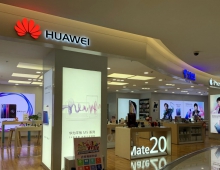Motion Sense and Face Unlock Features Coming to Pixel 4
Google's Pixel 4 is in the works, and the company is giving an early look at the technology behind two new features coming to the new smartphone that represent a next step in Google's vision for ambient computing.
Motion Sense
Google's Advanced Technology and Projects team (ATAP) has been working on Soli, a motion-sensing radar. Google has developed a miniature version located at the top of Pixel 4 that senses small motions around the phone, combining software algorithms with the hardware sensor, so it can recognize gestures and detect when you’re nearby.
Pixel 4 will be the first device with Soli, powering our new Motion Sense features to allow you to skip songs, snooze alarms, and silence phone calls, just by waving your hand. These capabilities are just the start, and just as Pixels get better over time, Motion Sense will evolve as well. Motion Sense will be available in select Pixel countries.
Face unlock
Face unlock may be a familiar feature for smartphones, but Google is engineering it differently.
Other phones require you to lift the device all the way up, pose in a certain way, wait for it to unlock, and then swipe to get to the homescreen. Pixel 4 does all of that in a much more streamlined way. As you reach for Pixel 4, Soli proactively turns on the face unlock sensors, recognizing that you may want to unlock your phone. If the face unlock sensors and algorithms recognize you, the phone will open as you pick it up, all in one motion. Better yet, face unlock works in almost any orientation—even if you're holding it upside down—and you can use it for secure payments and app authentication too.
Apple’s Face ID feature on the iPhone works in a similar way, and Apple has actually made a lot of progress with Face ID on the newest iPhones, so it will be interesting to see how well Google’s implementation compares against Apple’s Face ID.
Data safety
Face unlock uses facial recognition technology that is processed on your device, so that image data never leaves your phone. The images used for face unlock are not saved or shared with other Google services. To protect your privacy and security, your face data is stored in Pixel's Titan M security chip. Similarly, Google says Soli sensor data is also processed on your phone, and it’s never saved or shared with other Google services.
Google says the company will share more details about the Pixel 4 later this year.





















